Transforming Lives
A Somali Small-Business Boom
When Qani Abdi Alin and her two friends bought their first sewing machine in 2009, none of them knew how to sew. They paid $160 for an instruction book and peered at the diagrams since the instructions were not in Somali or English. The tailoring business in Somaliland is dominated by men, but Alin and her colleagues saw an opportunity. “We identified a market for certain women’s clothing,” says Alin. “We thought ‘Why do we have to look for a job? Why can’t we generate our own employment?’”
In the early morning hours of Dec. 13, 2012, Somali youth sprinted across Hargeisa, taking part in the Hargeisa Youth Amazing Race. The contest raised awareness about youth-related services and youth-managed businesses across Hargeisa.
Muna Mohamed, a competitor and biomedical student at the University of Hargeisa, expressed what appeared to be the prevailing sentiment: “I am so excited. I am very thrilled.”
Fatumo Jama Ahmed is a 30-year-old mother of two who lives in Berbera, Somaliland.
Ahmed did not go to school when she was young because, like many Somali girls, she was kept at home. Now, however, she is attending a USAID-supported basic education class, her son by her side.
“I have been studying at this center for one month,” she says. “I am now a completely different person … . I can write my name, I can write and read the Somali numbers and alphabets. After a few months I hope to be fully writing and reading and calculating.”
Ramadan Otieno has seen his community divided by the effects of xenophobia. In an area where ingrained fears and false perceptions of ethnic groups create a great divide, al-Shabaab, a terrorist organization, has taken advantage of the situation, exploiting locals’ lack of knowledge to incite violence. Frequently, communities will attribute the violence to an ethnic or religious group, rather than the organization.
“We forget that al-Shabaab are using [both Muslim and non-Muslim] youth from our communities,” Otieno said.
Several factors heighten food insecurity in Bangladesh, among them natural disasters, poor health and hygiene services, and chronic deprivation of the socially vulnerable. According to government figures, around 40 percent of the population is food insecure, meaning that 65 million people consume less than the minimum daily recommended amount of food.
Shahida, who does not use a last name, has always been strong and optimistic, even when times have been tough; and times have often been tough. Forced to become the second wife of a much older man at the age of 14, Shahida soon became the mother of three children. Ten years ago, her husband left her and her children, never sending money to support them. Then, in 2007, Cyclone Sidr destroyed all of her household belongings, after which she resorted to begging to buy food for her family.
Haitian mango farmers like Gardien Saintvil receive the best price for their fruit by selling it when ripe. But Saintvil has a powerful incentive to harvest too early and sacrifice much of the value of his mangoes.
“I often had to choose between selling my mangoes before they are ripe, or selling a goat when the price is low,” said Saintvil, who lives near the city of Hinche in central Haiti. “I’ve always appreciated the value of mango trees, so I try not to sell my mangoes early, but sometimes I had no choice.”
The Democratic Republic of Congo (DRC) is currently facing a complex food security situation, exacerbated by a rapidly deteriorating economy, a decline of overall agricultural production, plant diseases and years of armed conflict, which have limited the availability of staple crops such as cassava, maize and plantain. Childhood stunting and growth faltering is highly prevalent. High rates of childhood stunting are common across most regions of the DRC, but particularly high in rural regions.
Almost half of all the children in Madagascar under age 5 are stunted due to poor nutrition. Inadequate nutrition in the first few years of a child’s life will have negative, long term physical and mental consequences. A Catholic Relief Services (CRS) development food assistance program funded by USAID aims to combat malnutrition in 592 different villages in Madagascar.
Mauritania, located in the Sahel region of West Africa, experiences high levels of food insecurity with 42 percent of the population living below the poverty line. The majority of people in eastern and southern Mauritania survive on subsistence farming and herding. In 2012, a severe drought and resulting high food prices further reduced food security among many communities and households. A food assistance program implemented by Counterpart International (CPI) supported the creation of Village Development Committees throughout Mauritania to improve food security.
In northern Ethiopia, the rocky, dry Tigray region experiences high food insecurity and frequent shocks. In Mereb Leke wareda, a district within Tigray region, roughy a third of the population of 117,000 lives below the poverty line and produces only about a third of their annual food needs. They get by through market purchases and food received through a social safety net program.
The Productive Safety Net Program, or PSNP, was launched by the Government of Ethiopia in 2005 to help food-insecure families access food 12 months a year and protect community assets through public works projects. USAID is one of nine donors funding this program.
Pages
Last updated: February 01, 2013

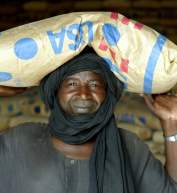
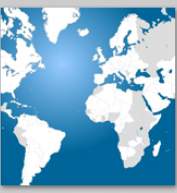

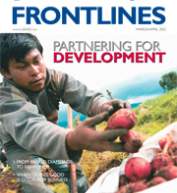
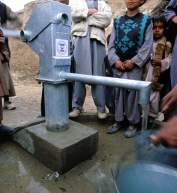

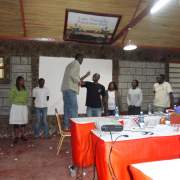
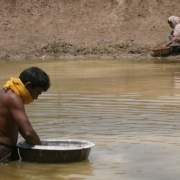
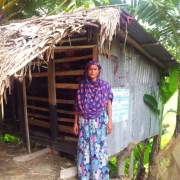
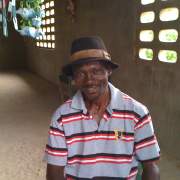
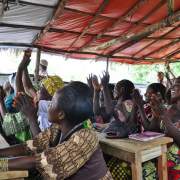
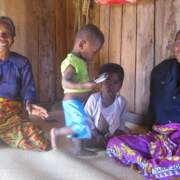
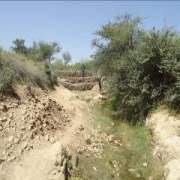
Comment
Make a general inquiry or suggest an improvement.